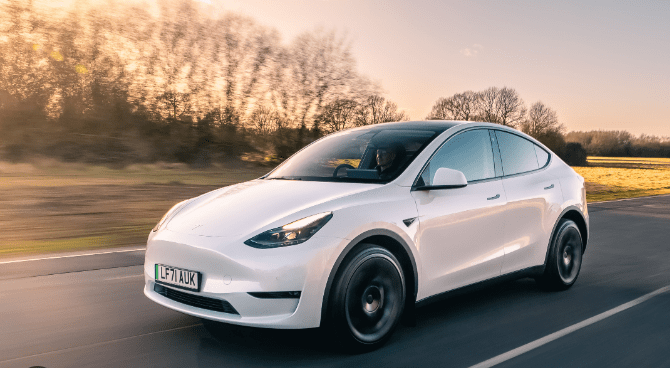Self driving cars systems utilize machine learning and neural networks to drive autonomously. These vehicles rely on an intricate combination of sensors, cameras, radar, and AI to travel between destinations without a human operator. For a vehicle to be considered fully autonomous, it must be able to navigate without human intervention to a predetermined destination over roads that have not been specifically modified for its use.
Self driving cars or Autonomous Vehicles were once a far-fetched concept. Today, they’re a reality, though not yet commonly seen on roads. This technology is made possible thanks to various AI-related innovations, particularly deep learning and computer vision. But this raises a question — what should you know about AI and self-driving cars?
How AI is used in self-driving cars
The rise of self-driving cars revolves around two technologies, computer vision, and deep learning. Computer vision employs cutting-edge sensors like high-resolution cameras and lidars. By processing information about the car’s environment, self-driving systems can identify obstacles and avoid accidents. However, computer vision isn’t the full solution. It’s equally critical to instruct autonomous vehicles to drive according to traffic regulations, where machine learning, supported by deep learning, comes into play.

Deep learning is a breakthrough AI technology that mimics human brain-like functions. In self-driving cars, every bit of data collected by sensors goes through a multi-layered neural network, analyzing images comprehensively. This solution enables car manufacturers to achieve a higher level of complexity and accuracy, resulting in smart self-driving cars that can nimbly navigate through congested urban landscapes.
Features of Cars with Self-Driving
Google’s Waymo project is a major breakthrough in autonomous vehicles technology. It operates almost entirely on its own, requiring human intervention only as a fallback during exceptional situations. Although it’s not pure self-driving technology, it attains an impressive level of autonomy, able to drive in optimal conditions. Though many cars currently available on the market possess fewer autonomous features than Waymo, some of the self-driving qualities it offers are present in various production models that premiered in 2019.
- Hands-free steering: The car can be centered without the driver’s hands on the wheel, but they must remain attentive.
- Adaptive cruise control (ACC) down to a stop: The automatic system maintains a selected safe distance between your car and the leading vehicle, ensuring a smooth driving experience.
- Lane-centering steering: The system intervenes when the driver crosses lane markings, using a gentle nudge to guide the vehicle back in the right direction. This feature helps maintain safety by preventing drifting into other lanes.
Benefits of AI in Self Driving Cars
To comprehend artificial technology’s effect on the automobile industry, let’s examine its expected benefits in our daily lives-
1. Improvs Vehicle Safety
The role of Artificial Intelligence in vehicle safety is apparent in modern cars that come equipped with advanced safety features such as emergency braking and lane control. These features operate on a well-engineered AI system, leveraging cameras and sensors to maximize accuracy and efficiency, thereby ensuring better road safety.
2. Predictive Driving Capabilities
While predictive driving may be a part of self-driving cars’ safety features, it’s worth noting this groundbreaking innovation separately. Cars exchanging data with each other to communicate is no longer limited to the movies.
A network broadcast that shares information about road accidents, weather, or heavy traffic enables artificial intelligence within cars to make informed decisions and prevent potential pitfalls.
Traffic Management
As a driver, nothing tests your patience quite like traffic. The gridlock on your way to work or a business meeting can be frustrating, to say the least. It’s easy to make mistakes and break traffic rules when you’re in a hurry or getting flustered.
To avoid hasty decisions, it’s important to keep a cool head and follow the rules of the road. After all, no one wants to deal with the consequences of reckless driving.
Independence for Disabled People
Individuals with disabilities often have to gauge their independence around other people because they cannot drive. With self-driving cars and innovative technology, such as Tesla’s Summon feature, those who cannot drive would not need to rely on someone else. This feature lets the car leave the parking lot and reach the owner. In the future, we can expect such technology to foster creative solutions, promoting independence for individuals with disabilities in their daily lives.
Also, Read-
Impact On Overall Cost of Self Driving Cars
Although the prospect of innovative self-driving cars may seem pricey, it’s essential to consider all the improvements in driving experiences that they offer. Once standardized, these vehicles will be accessible to all, with options available across varying budgets.
Aside from the initial cost, the expenses for car maintenance and insurance will also decrease. Artificial intelligence is built to operate vehicles safely, minimizing accidents. Moreover, the system will alert users of potential maintenance needs before they escalate into costly breakdowns or repairs.
Top Brands Working AI for Self Driving Cars Concept
1. Tesla Inc.
Automated vehicle technology is dominated by Tesla, a name synonymous with self-driving cars. The Model S and Model Y are among Tesla’s most popular vehicles, renowned for their impressive autonomy.
2. Waymo
Since 2009, Waymo has driven over 12 million miles in simulated and real-world environments to help prevent fatal crashes caused by human errors every year. With advanced real-time sensors and detailed custom maps, Waymo’s vehicles are continuously aware of their precise location on the road, promoting safety and efficient navigation.
3. Nvidia
Nvidia’s self-driving car technology prioritizes passenger safety above all else. With their advanced chip technology, the vehicle undergoes a multitude of safety checks to ensure the most reliable decisions while on the road. From efficient route planning to obstacle avoidance measures, Nvidia’s automated vehicle technology is leading the way in intelligent transportation systems.
4. Zoox
Zoox’s automated driving technology is designed for riders, not drivers. With cameras and radars, Zoox vehicles can see 360 degrees around and 150 meters ahead of passengers, even around corners. Enjoy an exceptional journey to your destination with Zoox.
5. Pony.ai
Pony.ai is a startup that aims to revolutionize the world of AI through safe and intelligent driving technology. Leveraging deep learning capabilities, they’re creating advanced software designed to power the next fleet of robotic trucks in China and beyond. With a bold vision and expertise in cutting-edge AI, Pony.ai is on a mission to make roads safer and transportation more efficient for everyone.


4 thoughts on “Artificial Intelligence in Self Driving Cars- Making of Autonomous Vehicles”